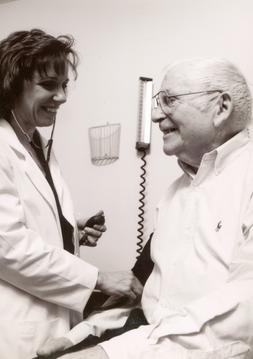A doctor criticised a comment I had made in one of my posts. I had written – ” It’s easy for doctors to “ do something “- this is what they are trained to do, and this is often the knee-jerk reflex of junior doctors. It’s only senior doctors who have a lot more clinical experience and maturity who are likely to advise that you it’s sometimes more effective to do nothing at all”
This was her comment. – “ I think you are being harsh and judgmental on junior doctors here. First of all, it is very hard to define ‘senior’ and ‘junior’ because they are relative terms . I am at 40yrs of age, I may not be a senior doctor but I am not junior either. Instead of saying junior or senior I would probably say some doctors are more pragmatic than others- they treat the problem arising from a condition rather than treating the diagnosis itself. Like in the case of fibroids, they should only be treated with only if they are creating problems and not just because they are there ! Whether a doctor ‘waits and watches’ or ‘treats aggressively’ depends on what sort of experience and training they have had in the past rather than their age. Not all junior doctors are aggressive and not all senior doctors are conservative. I did my basic training (MBBS and MD) in India and subspecialty training in UK and it was the training in UK that taught me to be pragmatic, not my age.”
She is absolutely right, and I do agree that age is not equal to wisdom. Sometimes, 30 years of experience may just mean 30 years of making the same mistake repeatedly ! Yes, there are very mature junior doctors – and some very immature senior ones.
While it is true that chronological age does not always correlate with intellectual age, in general, younger doctors are more optimistic about what medical technology and their professional expertise can accomplish. Most of their learning comes from text books, which usually describe “text book cases”, where the course of the disease is predictable . It’s only when they start treating patients in real life that they realize that patients’ bodies have not read the textbooks – and that diseases will behave in complex and unpredictable fashions !
Secondly, most of a junior doctor’s the learning occurs in hospitals. Now, while hospitals are fascinating collections of patients with complex medical problems and exotic diseases, the “ bread and butter “ problems which patients present with in real life are completely different from those which affect hospitalized patients. Hospitals are showcases of medical sophistication, and junior doctors get to see how teams of specialists and advanced technology can help seriously ill patients to get better . However, real life is much messier – and doctors in clinical practice usually do not have access to the army of specialists or wealth of resources which they had when they were medical students and residents. They learn they have to do a lot more with a lot less – and that they do need to consider the financial impact of their medical decisions as well.
Hospitalized patients usually have serious problems which need intervention , which is why they are in hospital in the first place. However, ambulatory patients ( seen in the clinic ) have a completely different presentation – so that even though the “diagnosis” maybe the same, the management needs to be completely different !
Over time, a doctor’s text book learning gets tempered with maturity. They learn the limitations of medical science , and start to appreciate how poor we are at predicting the course of a particular disease in an individual patient. The natural history of a disease in a patient can be very variable, and because so much of this depends upon the patient’s idiosyncratic responses, we learn that every patient is different, and we need to respect their individuality.
As they mature, doctors learn to respect their patients and to listen to their patients and their preferences. They realize that they do not have all the answers ; and that they can learn a lot from their patients. They figure out that many patients will get better on their own ; and some will improve, even inspite of the medical treatment we force down their throats. Not all abnormalities need treatment , and watchful waiting is often the best course of action for many shadows picked up on scans and routine checkups.
Some young doctors mature very quickly , while some seniors remain blissfully unaware of these facts. Rather than depend upon the doctor’s age or reputation, it’s best for patients to understand their disease, so they can partner with their doctor.

